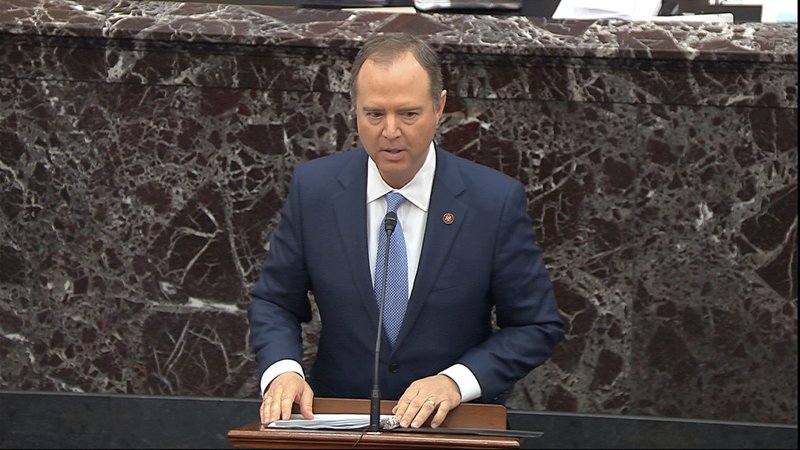As the U.S. Senate's trial of President Donald Trump gets underway, Americans are left to wonder if that venerable institution will do its job.
Trump, only the third president to be impeached in U.S. history, will be judged by the senators, each of whom has sworn to do "impartial justice according to the Constitution and the laws."
Will they?
These are among the most elite of political animals, people who see the world and their duty through a partisan lens, albeit from differing political perspectives.
One side sees a president who did nothing wrong. The other not only sees presidential wrongdoing but alleges a massive cover-up and a dire threat to democracy.
In the Senate, the political edge belongs to Republicans, a majority of whom are loyal to President Trump. They are kept in line by Mitch McConnell, the long-serving Kentucky senator who is their strong-armed majority leader.
Control of the U.S. House of Representatives is in equally strong but Democratic hands. Led by Speaker Nancy Pelosi of California, a divided House passed two articles of impeachment on Dec. 18 against the president, one for abuse of power and the other for obstruction of Congress.
The first article is for Trump's abuse of power by withholding needed U.S. aid to Ukraine in exchange for political favors to his re-election campaign.
The second is for stonewalling the impeachment investigation, refusing to allow administration representatives to testify or provide documents to Congress.
For the record, Arkansas' four House members, all Republicans, voted against both articles, which finally reached the Senate last week.
Arkansas' two senators, John Boozman of Rogers and Tom Cotton of Dardanelle, have said both articles of impeachment should be rejected.
Boozman claims he's withholding judgment, but he has said Trump's alleged conduct, if true, doesn't rise to the level of impeachment. He also criticized the House impeachment process as unfair to the president.
Cotton called Trump's impeachment a "sham" but maintains that view is not inconsistent with the oath of impartiality he took.
Cotton does not see the Senate as a jury when it sits as a court of impeachment. He said impeachment is a political proceeding, not a criminal trial, and that senators will act as senators when they consider the case.
The Arkansas senators were not saying anything that other Republican senators and Trump supporters weren't, even if a majority of Americans apparently think differently.
Recent CNN polling shows 51 percent of Americans believe Trump should be convicted and removed from office.
Nevertheless, his loyal allies in the Senate are working against that potentiality.
Rules offered by McConnell, assuming they remain intact, set a quick schedule for House managers to prosecute their case against the president and for the president's attorneys to respond.
McConnell wants each side to have 24 hours over two days to make their opening arguments. That's all supposed to happen this week and could run into early morning hours each night.
Decisions on whether to allow introduction of new witnesses or documents would come later, if at all.
Neither will happen unless enough Republicans break ranks from McConnell and the White House and their shared desire for a quick acquittal of the president.
The rushed schedule, according to Democrats, will exhaust the participants and make more difficult citizens' ability to follow the trial.
Heavy restrictions on press coverage of the proceedings and the participants will also dampen the public's access to the still developing facts.
There is even a Republican plan in the works to shroud in secrecy any possible testimony from one key witness. That is John Bolton, a former national security adviser to Trump, whom Republicans may require to testify in a classified setting, if he is allowed to testify at all.
Get the picture? The goal here seems to be to hurry the process and limit access to information to the decision makers and the people they serve.
Even evidence developed during the House inquiry might not make it into the impeachment trial record.
While it may be called a trial, what began on Tuesday won't look much like one if critical evidence is not allowed.
Senators run a serious political risk, if they don't bring in more witnesses or try to hide them away from public view.
Just check out that CNN poll again. While Americans are about evenly split on the president's conviction or acquittal, 69 percent want to hear more witnesses. That's 86 percent of Democrats, 69 percent of independents and even 48 percent of Republicans who want to hear witnesses.
Clearly, America expects -- and deserves --more from the Senate than may be forthcoming.
Commentary on 01/22/2020

